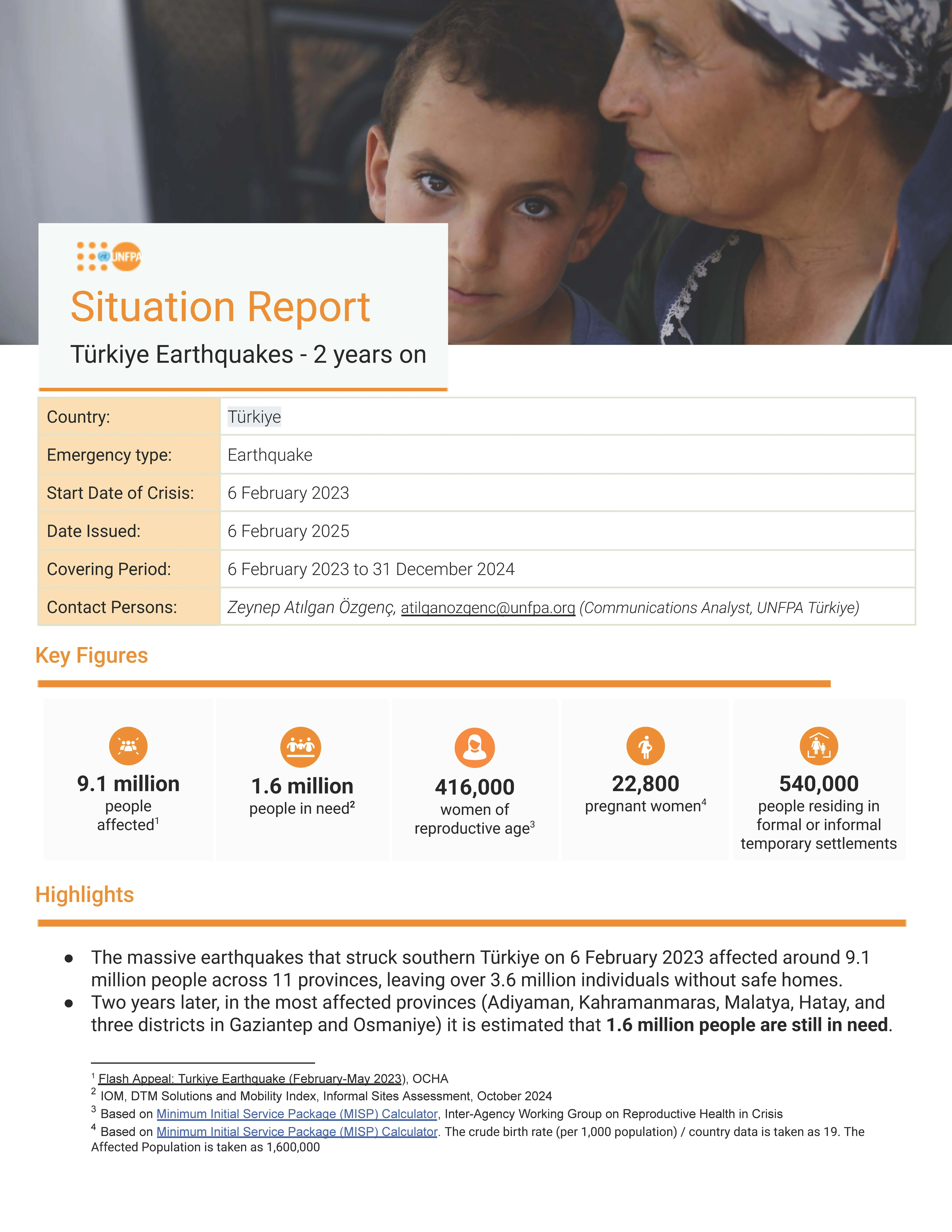- The massive earthquakes that struck southern Türkiye on 6 February 2023 affected around 9.1 million people across 11 provinces, leaving over 3.6 million individuals without safe homes.
- Two years later, in the most affected provinces (Adiyaman, Kahramanmaras, Malatya, Hatay, and three districts in Gaziantep and Osmaniye) it is estimated that 1.6 million people are still in need.
- Among them 416,000 are estimated to be women and girls of reproductive age, including 22,800 pregnant women. More than half a million people reside in formal and informal sites.
- Container settlements pose multiple challenges for residents especially in the long term. Limited privacy negatively affects family relationships, personal healthcare including menstrual hygiene, and mental health. Insufficient security measures and inadequate lighting create security risks.
- Infrastructure repairs are still ongoing, and staff shortages and transportation issues continue. Access to safe motherhood and sexual and reproductive health (SRH) services remains a critical issue, especially for women and adolescents. Refugees and people with disabilities are among those facing most challenges in accessing basic services.
- Growing economic hardships have led to increased gender-based violence (GBV) risks, while service interruptions and limited access to shelters and legal assistance further hinder protection efforts. Deepening poverty, societal norms, and displacement have led to girls dropping out of education, which poses an increased risk for early and forced marriages.
- Youths in the earthquake region face loneliness, stress, and depression and show increased tendencies of risky behaviours due to disruptions in education and weak social support networks. The lack of private spaces, study areas, psychological support, and youth-friendly spaces and services intensifies these issues.
- It is important to invest in buildings and services to be more accessible, increase the availability of psychosocial support, and retain and expand initiatives that facilitate participation in education and employment.
- UNFPA has been on the ground with its partners since day one, without a pause, providing life-saving safe motherhood and sexual and reproductive health services to more than 128,000 individuals, and gender-based violence prevention and response services to almost 160,000 individuals.
- For 2025, UNFPA appeals for 24.2 million USD within the framework of the Regional Refugee and Resilience Plan (3RP), which also includes responses in the regions affected by the earthquakes. 85% of this appeal is unfunded, as of February 2025.
More information is in our situation report.




